Cocaine addiction is one of the most dangerous and misunderstood substance use disorders in the United States. Though often associated with wealth, parties, and temporary bursts of energy, cocaine’s effects are short-lived and deeply damaging. What begins as an occasional stimulant to “feel more alive” can quickly turn into a dependency that consumes every aspect of daily life. Recognizing early cocaine addiction signs is crucial, as the sooner treatment begins, the greater the chance for full recovery.
At The Wave of North Florida in Lake City, we help individuals reclaim their lives from the grip of cocaine addiction. Through evidence-based treatment, medical supervision, and therapeutic support, our clients learn to break free from dependency and rebuild stability, confidence, and health.
Understanding Cocaine and Its Addictive Power
Cocaine is a powerful stimulant derived from the coca plant. It floods the brain with dopamine, creating a rush of pleasure, alertness, and energy. This euphoric effect, though short-lived, drives people to use cocaine repeatedly, seeking that same feeling again and again. The brain quickly adapts, reducing its natural dopamine production and receptor sensitivity. As a result, individuals need more cocaine to feel the same high. This creates a dangerous cycle of tolerance, dependence, and compulsive use. Cocaine can be snorted, smoked (as crack cocaine), or injected. Each method affects the body differently, but all deliver intense stimulation that strains the heart, brain, and nervous system. Over time, addiction takes root not just physically, but mentally and emotionally as well.
Recognizing the Early Signs of Cocaine Addiction
Cocaine addiction signs often start subtly, disguised as increased productivity, sociability, or energy. However, as use progresses, the warning signs become harder to ignore. Understanding what to look for can help family members or friends identify a problem before it becomes life-threatening.
Common early signs of cocaine addiction include:
- Frequent bursts of energy followed by exhaustion
- Nosebleeds or nasal irritation from snorting cocaine
- Rapid weight loss or loss of appetite
- Mood swings, irritability, or anxiety
- Unexplained financial problems or secretive behavior
- Overconfidence or risk-taking behavior
- Staying up for long periods, then “crashing” for days
Over time, these symptoms escalate. Users may experience paranoia, muscle twitching, or intense cravings. Their social life, work performance, and relationships deteriorate as cocaine use becomes their main focus.
How Cocaine Affects the Brain and Body
Cocaine’s immediate effect on the brain is a massive surge in dopamine levels. While dopamine naturally helps regulate motivation and pleasure, cocaine artificially traps it in the brain’s synapses, leading to prolonged stimulation. This causes feelings of euphoria, power, and confidence—but it also burns out the brain’s natural chemistry.
Physically, cocaine places tremendous stress on the cardiovascular system. It constricts blood vessels, raises blood pressure, and accelerates heart rate. Repeated use increases the risk of heart attacks, strokes, and respiratory failure.
Other physical consequences include:
- Chronic fatigue and insomnia
- Digestive issues and malnutrition
- Damage to nasal tissues and sinuses
- Increased risk of seizures
- Tremors and muscle weakness
The combination of physical and psychological effects makes cocaine addiction particularly dangerous. Even after someone stops using, the brain can take months or years to restore healthy dopamine levels, leaving the individual vulnerable to depression and relapse.
The Psychological Toll of Cocaine Addiction
Cocaine’s effect on mental health is just as devastating as its impact on the body. Many individuals begin using it to manage stress, boost confidence, or cope with emotional pain. However, repeated use often leads to increased anxiety, paranoia, and depression. Some individuals experience what’s known as “cocaine psychosis,” a state of extreme paranoia and hallucinations that can resemble schizophrenia. This mental unraveling reinforces the need for professional intervention before symptoms become chronic.
Other psychological effects of cocaine addiction include:
- Heightened irritability and anger
- Impulsive or reckless decisions
- Obsession with obtaining and using the drug
- Emotional numbness or disconnection
- Difficulty concentrating or remembering details
When mental health disorders such as anxiety, depression, or trauma co-occur with cocaine addiction, the recovery process must treat both conditions simultaneously. At The Wave of North Florida, our dual-diagnosis programs address addiction and mental health holistically, ensuring long-term healing and balance.
The Dangers of Polysubstance Use
Many people struggling with cocaine addiction combine it with other substances, such as alcohol, opioids, or benzodiazepines. This practice, known as polysubstance use, greatly increases the risk of overdose and long-term health problems.
Cocaine’s stimulant effects can mask the sedative properties of alcohol or opioids, leading individuals to consume more than they realize. This combination often results in respiratory failure, cardiac arrest, or fatal overdose. Detoxing from multiple substances requires medical supervision. The team at The Wave of North Florida provides a safe, supportive environment where clients can withdraw from cocaine and other drugs under professional care.
Why Early Intervention Matters
Recognizing cocaine addiction signs early can make all the difference. The longer cocaine use continues, the harder it becomes to stop without medical and psychological support. Early intervention allows individuals to avoid the most damaging long-term effects, such as heart disease, brain damage, and irreversible emotional instability. Family members play a vital role in early detection. Open conversations, expressing concern without judgment, and offering help can encourage someone to accept treatment before the addiction worsens. Once a person enters care, medical detox helps them safely manage withdrawal symptoms such as fatigue, irritability, and depression. From there, comprehensive treatment addresses the underlying causes of addiction and teaches strategies for sustained recovery.
Effective Treatment Options for Cocaine Addiction
Recovery from cocaine addiction requires more than willpower—it requires structure, therapy, and community. At The Wave of North Florida, clients receive evidence-based treatment tailored to their unique needs and history.
Medical detox is the first step, providing stability while managing withdrawal symptoms. Residential treatment offers a focused environment for healing, including daily therapy sessions, group support, and life-skills development.
For individuals who have completed residential care, partial hospitalization (PHP) and intensive outpatient programs (IOP) provide flexible schedules that allow them to continue treatment while transitioning back into their daily routines.
Therapies used at The Wave include:
- Cognitive Behavioral Therapy (CBT) to identify and replace harmful thought patterns
- Motivational Interviewing (MI) to strengthen internal motivation for change
- Trauma-focused therapy to process painful past experiences
- Group therapy to build accountability and support
This integrated approach ensures that clients not only stop using cocaine but also gain the tools to rebuild their lives and prevent relapse.
The Long Road of Recovery and Hope
Recovery from cocaine addiction is not just about abstaining from the drug—it’s about restoring balance, confidence, and purpose. Early treatment allows individuals to repair the physical, emotional, and relational damage caused by addiction. Over time, energy levels return, mental clarity improves, and self-esteem grows stronger. At The Wave of North Florida, we believe in long-term healing through compassion, connection, and education. Our clients learn to replace chaos with stability and self-destruction with personal growth. Recovery means discovering that life without cocaine can be fuller, healthier, and more rewarding than ever imagined.
Get Help for Cocaine Addiction in North Florida
If you or someone you love is showing cocaine addiction signs, don’t wait to get help. The sooner treatment begins, the greater the chance for full recovery. The Wave of North Florida in Lake City provides compassionate, evidence-based care for cocaine addiction and co-occurring mental health issues. Serving communities across North Florida and South Georgia, The Wave offers a safe space to heal, rebuild, and rediscover hope. Whether you’re seeking residential treatment or an outpatient program, our team will guide you through every step of recovery.
You don’t have to face addiction alone. The journey begins the moment you ask for help—and at The Wave of North Florida, that help is ready and waiting.



